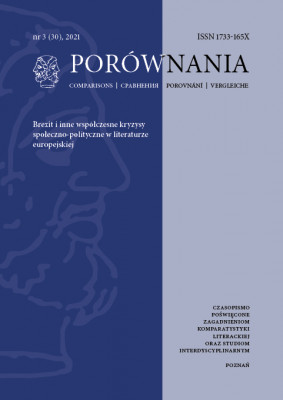Swan-Eaters: Relative Otherness in the Experience of the Polish Economic Migration to Great Britain After 2004
The text joins a discussion about migration movements, calling to attention the issue of socio-cultural divisions occurring also between European societies whose collective identities are both strong and, additionally, internally diverse. The article claims that, by analysing the experience of Polish economic migrants to Great Britain, we can notice key problems of the Polish system and economic transformation in its socio-cultural aspects. These problems, much sooner than in Poland, lost their transparency and became discursive due to the clash of the immigrant (subaltern) subjects with the new environment. The argument focuses on how the Polish familiar subject (an average individual, embodying the Polish peripheral version of the civilizational-cultural norm which distinctively separates Us [the familiar] from the Other [strangers]) experiences a situation in which the Familiar Pole takes on the role of the Other. Ewa Winnicka’s "Angole" (2014) will serve as focal point of our discussion. As the condition of the Polish migrants often happens to be unintentionally problematized, the subject in question engages in self-observation and tries, with varying results, to find himself in a relation to the local British Familiars. In this structure, the latter become the source of the norm, in relation to which the Polish migrant situates himself on the outside. At the same time, the only available instruments are those that the Polish norm ascribes for use in relation with the Other. The paradox of these circumstances, apart from anything else, gives way to the populist instrumentalization of the phenomena they generate, which was very effectively used by Brexit supporters.
| Article Title | Type | Size |
|---|---|---|
| 15 Gosk | [pdf] | [152 KB] |
